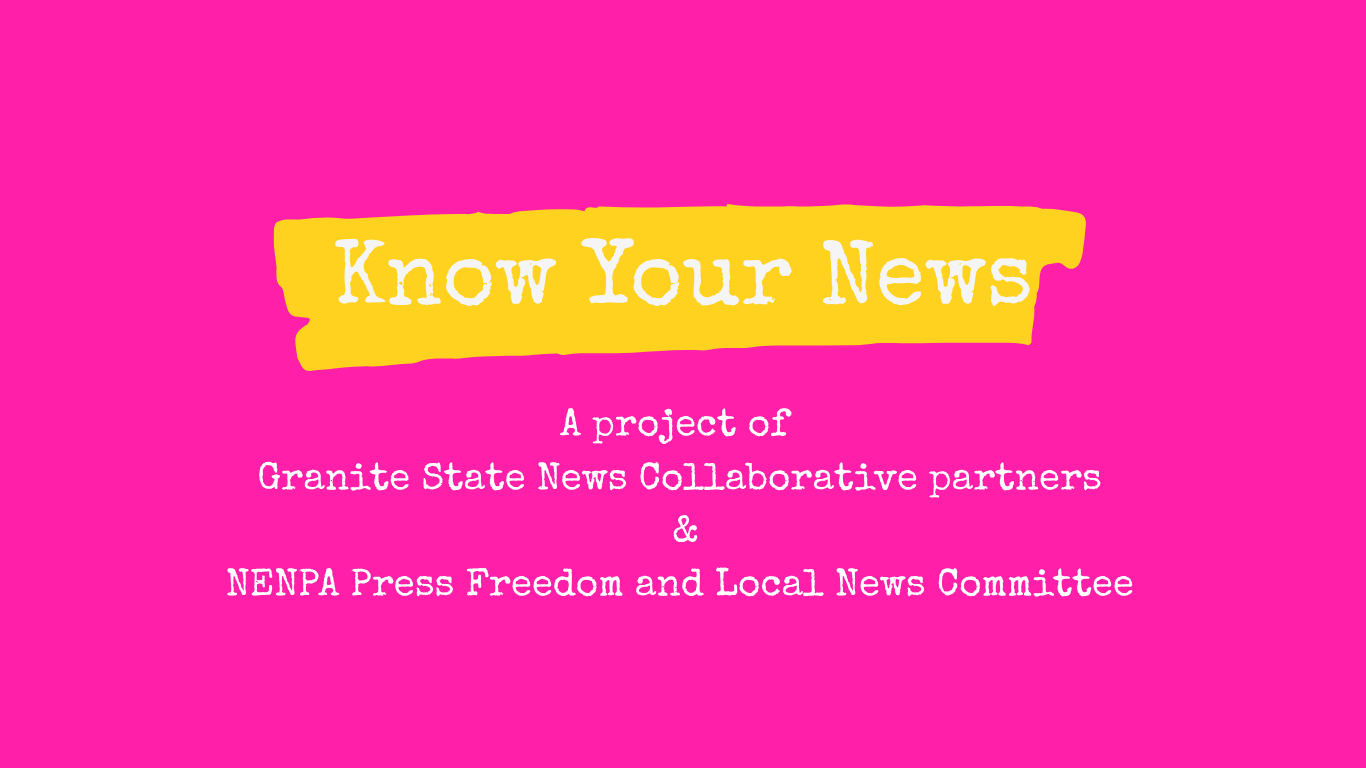New Hampshire’s constitution requires that the public have access to governmental meetings and records
By Annmarie Timmins, Granite State News Collaborative
The town of Warner made headlines this summer that no town wants. The town administrator sought a restraining order against a selectman for alleged assault. Shortly afterward, the assault charges were dropped and she was put on leave. A firm hired to audit the town’s finances abruptly quit, citing concerns about the reliability of the town’s records, among other things.
All of it — and more — played out in public during selectboard meetings, where residents were allowed to ask questions and raise concerns. If not for the state’s right-to-know law, it could have played out behind closed doors instead and not led to public scrutiny of the town’s financial practices or conversations about adding cameras to town hall to address safety concerns.
Elsewhere, input from the public has led school boards to reinstate bus routes and reconsider closing elementary schools and persuaded town officials to rethink policies around property tax exemptions and approving workforce housing.
New Hampshire’s constitution requires the public to have access to governmental meetings and records with these words: “All power residing originally in, and being derived from, the people, all the magistrates and officers of government are their substitutes and agents, and at all times accountable to them.”
Yet most people know more about decisions made by Congress than what’s happening in their community because they don’t attend their local planning, select, zoning or school board meetings. That’s a missed opportunity, said Margaret Byrnes, executive director of the N.H. Municipal Association, which provides local officials with training, education, and legal services.
“Even if you are not interested in speaking (at a meeting) … it is really important for voters to remember that most of the big issues affecting our everyday lives in New Hampshire are happening at the local level,” Byrnes said. “So, just trying to find out even in a small way to pay a little bit more attention is really beneficial for both local government and voters.”
Here’s how you can do that.
State law requires public bodies, such as select, planning, zoning, and school boards, to make their meetings open to the public except in limited circumstances. Those exceptions include personnel discussions, consultations with the municipality's lawyer, and sessions to discuss union bargaining strategy.
A public body must state why it’s going into a non-public session and vote afterward whether to seal the meeting minutes.
Cities and towns must publicize upcoming meetings in at least two places, such as a local newspaper or on their websites, at least 24 hours in advance. Many post a board’s meeting schedule so you can plan well in advance. In some communities, you can sign up for email alerts of upcoming meetings.
You can record meetings with a phone or other device without prior permission.
There is no guarantee you will be allowed to speak at a meeting, save for an annual school or town meeting or public hearing, because the law does not require public bodies to make time for public comment. Byrnes said most municipalities do, but may limit each speaker to a certain amount of time.
Your input can have an impact — especially if you weigh in before a board votes, say, on an annual school or town budget or new policy.
“We hear from towns … that people don’t engage or participate at the earlier stages,” Byrnes said. “You might not realize that (you) could go to learn more and even make comments that might influence changes in the budget.”
If you missed a public meeting, you can catch up by reading the minutes or watch a video recording afterward in communities that livestream or record meetings. Local newspapers or other news outlets also provide coverage of many public meetings.
Some municipalities include more detail in their minutes than others. Minutes must be made available within five days of a meeting. If minutes are not posted on a town website within five business days, you can request a copy.
“I know town officials understand that people are busy or that sometimes people aren’t aware of what the process is,” Byrnes said. “I think we all go through, ‘What’s the best way to connect with people so they know what their opportunities are to engage?’”
This story is part of Know Your News — a Granite State News Collaborative and NENPA Press Freedom Committee initiative on why the First Amendment, press freedom, and local news matter. Don’t just read this. Share it with one person who doesn’t usually follow local news — that’s how we make an impact.


